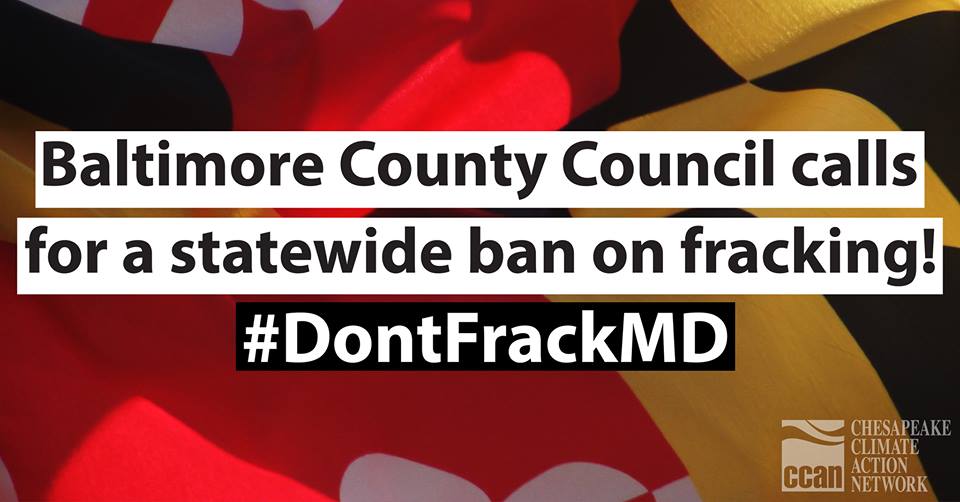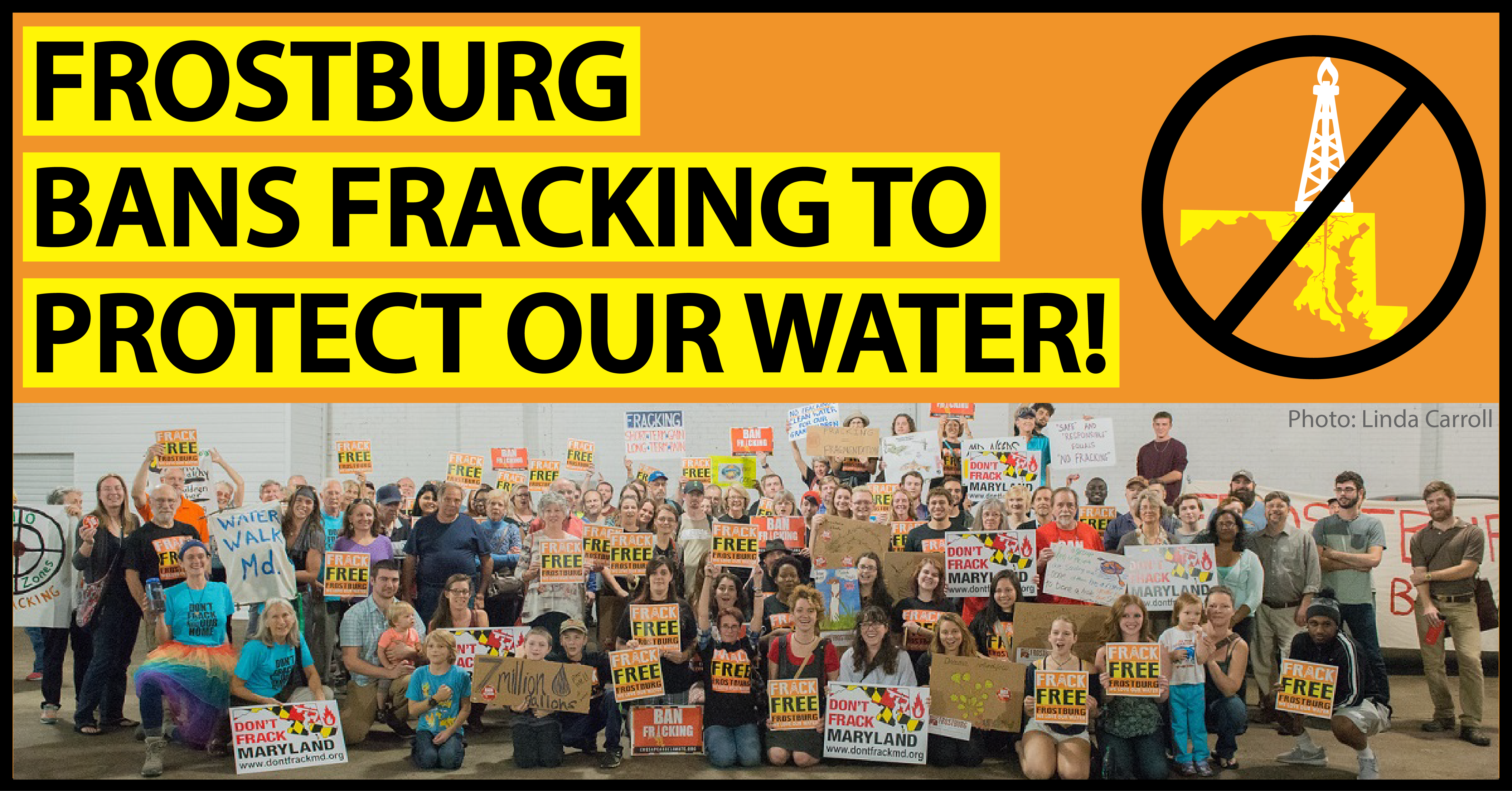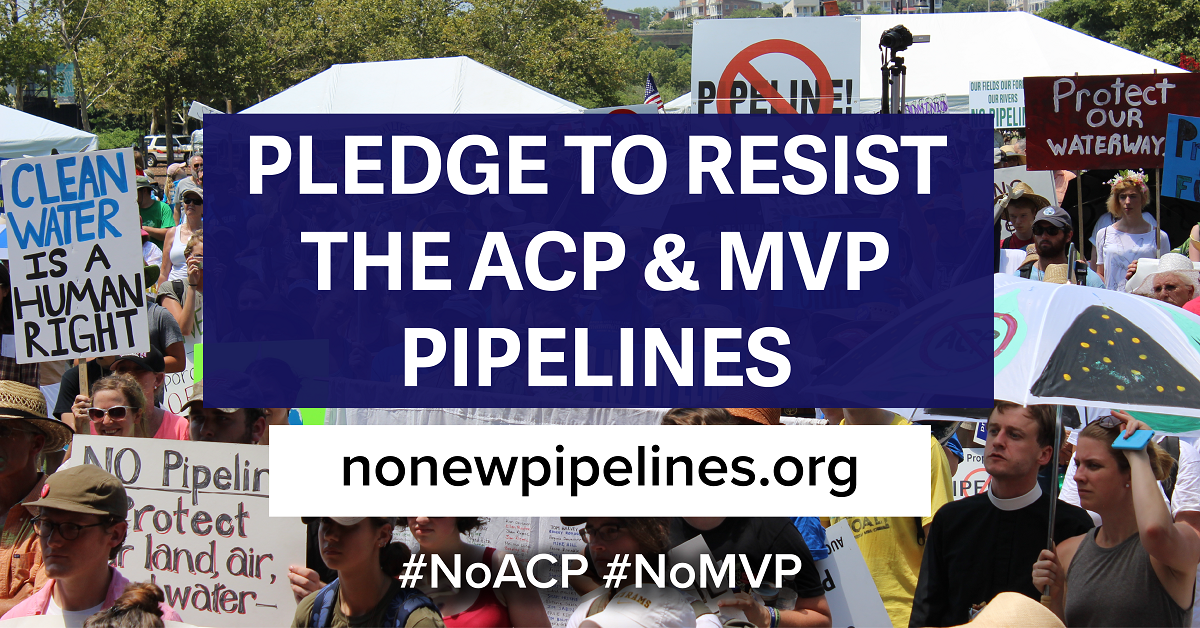Community and Conservation Groups Blast FERC Findings on Fracked-Gas Atlantic Coast Pipeline
WASHINGTON, D.C. – Dozens of local groups and public advocacy organizations today condemned federal regulators for ignoring evidence that the proposed 600-mile Atlantic Coast Pipeline is not needed and puts lives, communities, drinking water supplies, private property, publicly owned natural resources and the climate at unacceptable risk.
The Federal Energy Regulatory Commission has released its draft environmental review of the $5 billion pipeline spearheaded by Dominion Resources. For two years, the proposal has sparked fierce opposition from hundreds of landowners in the three states — including farmers, business leaders, Native American tribes and rural African-American communities — who reject the company’s plan to take their land without their consent. Their fight has drawn comparisons to the ongoing citizen-led resistance at Standing Rock against the Dakota Access Pipeline, and to the fight in Nebraska to stop the Keystone XL Pipeline.
The Atlantic Coast project would pump fracked gas across West Virginia, Virginia and North Carolina, harming communities, water resources, private property, historic sites, and iconic public treasures including the Blue Ridge Parkway and Appalachian Trail. The groups say FERC failed to honestly assess these impacts and disregarded evidence that the project would lock consumer into decades more reliance on dirty fossil fuels.
An independent study shows there is enough existing gas supply in Virginia and the Carolinas to meet consumer demand through 2030 — negating the need for the massive pipeline and the harm it would trigger. The Atlantic Coast Pipeline is one of six major pipelines proposed for the same region of West Virginia and Virginia, where experts warn the gas industry is overbuilding pipeline infrastructure. However, FERC ignored this evidence in its draft Environmental Impact Statement while also failing to assess the cumulative effects of the pipelines. The groups also fault the agency for dismissing clean energy alternatives.
In response to requests from numerous elected officials and organizations, FERC has extended the usual 45-day period for public comments; the deadline is April 6, 2017.
While legal and environmental experts are continuing to review the document, they have initially identified major gaps in FERC’s analysis, including:
- The core issue of whether the massive project is needed to meet electricity demand, and whether alternatives including energy efficiency, solar and wind would be more environmentally responsible sources;
- A complete analysis of the cumulative, life-cycle climate pollution that would result from the pipeline;
- A full accounting of the negative economic consequences to communities, including decreased property values, loss of tourism revenue and other factors;
- Any accounting of other environmental and human health damage from the increased gas fracking in West Virginia that would supply the pipeline; and
- Thorough, site-specific analysis of damage to water quality and natural resources throughout the pipeline route.
Citizens along the route of the Atlantic Coast Pipeline — along with landowners in the path of the Mountain Valley Pipeline, a 301-mile fracked-gas project proposed in the same region — vow they will continue to build resistance to stop them.
Statements from community, environmental and legal experts:
Nancy Sorrells, Augusta County Alliance, 540-292-4170, info@augustacountyalliance.org “Every foot of this route has a victim: a family that would be displaced, a farmer who would impacted, schoolchildren whose safety is compromised, and residents whose drinking water is a risk. And for what? Not for energy independence or to turn on the lights, but rather for the profit of a private corporation.”
Chad Oba, Friends of Buckingham, Cofounder and Chair, 434-969-3229, chado108@me.com “Buckingham County is being targeted for a massive, noisy, polluting compressor station — the project’s only one in Virginia — in an area of former slave plantations that is densely populated by mostly African-American Freedmen. FERC’s review omits virtually all of the cultural resource reports we submitted, effectively erasing us from the record even as we bear the greatest burden. The leaders of Standing Rock have pledged strong kinship with us as another example of environmental racism.”
Ericka Faircloth, a Lumbee Indian member of the grassroots group EcoRobeson. (For interview requests, contact Hope Taylor with Clean Water for NC at hope@cwfnc.org ) “Folks who live in Robeson County, one of the poorest and most diverse counties in North Carolina, are especially vulnerable to the empty promise of jobs. Residents of low wealth will be most severely impacted by higher utility rates to pay for the pipeline, and by lowered value for their land. Potential drinking water contamination, loss of forests and disruption of cultural sites are among the risks many that poor communities are expected to ‘deal with’ to make way for a project that’s only about profit.”
Joe Lovett, Appalachian Mountain Advocates, Executive Director, 304-520-2324, jlovett@appalmad.org “We’re appalled FERC has once more refused to conduct a combined review of the massive slate of pipelines proposed to move fracked gas out of our region. FERC has the extraordinary power to grant ACP the right to take private property for private profit. Yet FERC decided that it didn’t have to do the hard work necessary to determine whether the ACP is necessary. Such a lack of diligence is truly remarkable.”
April Pierson-Keating, Mountain Lakes Preservation Alliance (W.Va.), 304-642-9436, apkeating@hotmail.com: “This pipeline would add insult to injury in West Virginia, where we are already dealing with water and health impacts due to fracking. It would lock us into decades more fossil fuel pollution when we should be moving to renewable energy. This pipeline would continue the harm done by extractive industry to the most vulnerable of us — low-income people, the elderly, the disenfranchised.”
Peter Anderson, Virginia Campaign Coordinator, Appalachian Voices, 434-293-6373, peter@appvoices.org “This pipeline would carry highly pressurized gas across miles of steep mountain terrain that is prone to rock slides and contains many headwater streams. Routing this pipeline across the Appalachian Trail and vulnerable water resources poses an unacceptable risk, especially given that it’s not needed to meet our energy needs.”
Anne Havemann, General Counsel, Chesapeake Climate Action Network, 240-396-1984, anne@chesapeakeclimate.org: “The Atlantic Coast pipeline will trigger a massive new wave of greenhouse gas pollution and climate damage. Yet, FERC’s review once again fails to add up the full impact, ignoring cumulative climate pollution from fracking wells and the ultimate burning of the gas.”
Greg Buppert, Senior Attorney, Southern Environmental Law Center, 434-977-4090, gbuppert@selcva.org “Dominion’s Atlantic Coast pipeline will not only irreparably alter our natural terrain but it is also unnecessary. The current route carves through the mountains in an area the U.S. Forest Service calls, ‘the wildland core of the central Appalachians’, for a pipeline that will lock generations of Virginians into dependence on natural gas. We already have the gas needed to bridge us from dirty to clean energy-existing infrastructure can meet our demands for natural gas for at least the next fifteen years. This is a Dominion self-enrichment project, not a public necessity.”
Kirk Bowers, Pipelines Campaign Manager, Virginia Chapter, Sierra Club, 434-296-8673, kirk.bowers@sierraclub.org “The DEIS is deficient in many respects and needs to be re-issued. It imposes absurd pre-conditions for serious consideration and fails to affirmatively seek out alternatives that would meet the presumed need while greatly mitigating harms to the public and environment, land-takings and even costs. Likewise, the Commission needs to stop approving all projects that have contract support and take seriously its duties to consider all factors affecting the public convenience and necessity, including protecting environmental interests and private property rights not to have land seized for privately owned pipelines just because another private party contracts for service.The ACP is not needed to keep the lights on, homes and businesses heated, or industries in production.”











